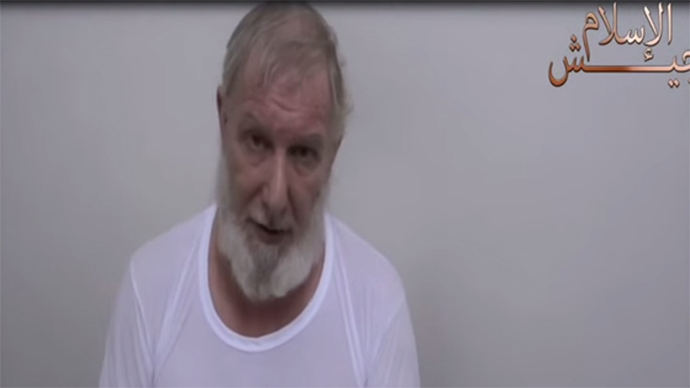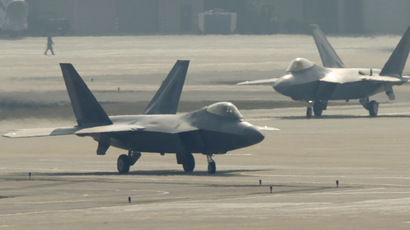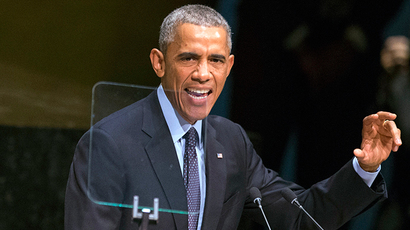British hostage freed by militants in Libya

Following a string of hostages being beheaded by the Islamic State, a British teacher who was being held by militants in Libya has been released.
David Bolam, who was taken hostage earlier this year from the Libyan town of Benghazi, has been reunited with his family, the British Foreign Office announced on Sunday.
READ MORE: ISIS beheads British hostage Henning, releases video
"We are glad that David Bolam is safe and well after his ordeal, and that he has been reunited with his family," a Foreign Office spokeswoman said. "We have been supporting his family since he was taken."

There were concerns that Bolam would suffer the same fate as US and British hostages who were killed by Islamic State (IS) militants. American journalists James Foley and Steven Sotloff, and British contract workers David Haines and Alan Henning all suffered grisly beheadings by their captors.
Henning was reportedly killed just one day before Bolam was freed from his
Libyan captors.
Bolam, who was vice-principal at the International School in
Benghazi, appeared on August 28 in a video - released by a
little-known group that calls itself the Army of Islam - in which
he made a plea to Prime Minister David Cameron to secure his
freedom.
The city where Bolam was taken captive, Benghazi, the second
largest city in Libya, has featured prominently in the ongoing
Libyan tragedy.
On the evening of September 11, 2012, Muslim protesters, enraged
at the airing of a film, Innocence of Muslims, which
depicted the Prophet Mohammed in an unflattering light, stormed
the US diplomatic compound in Benghazi, killing the US Ambassador
to Libya, J. Christopher Stevens, and three other American
personnel.
A former co-worker of released hostage told the BBC that Bolam
made the decision to remain in Libya despite growing instability
since the violent removal of Libyan strongman Muammar Gaddafi in
2011 because he "believed in what he was doing."
The BBC, without citing sources, reported that “money changed
hands” in order to secure Bolam’s release.
The Foreign Office, which does not support the payment of
ransoms, did not comment on the report, according to the
Independent.














